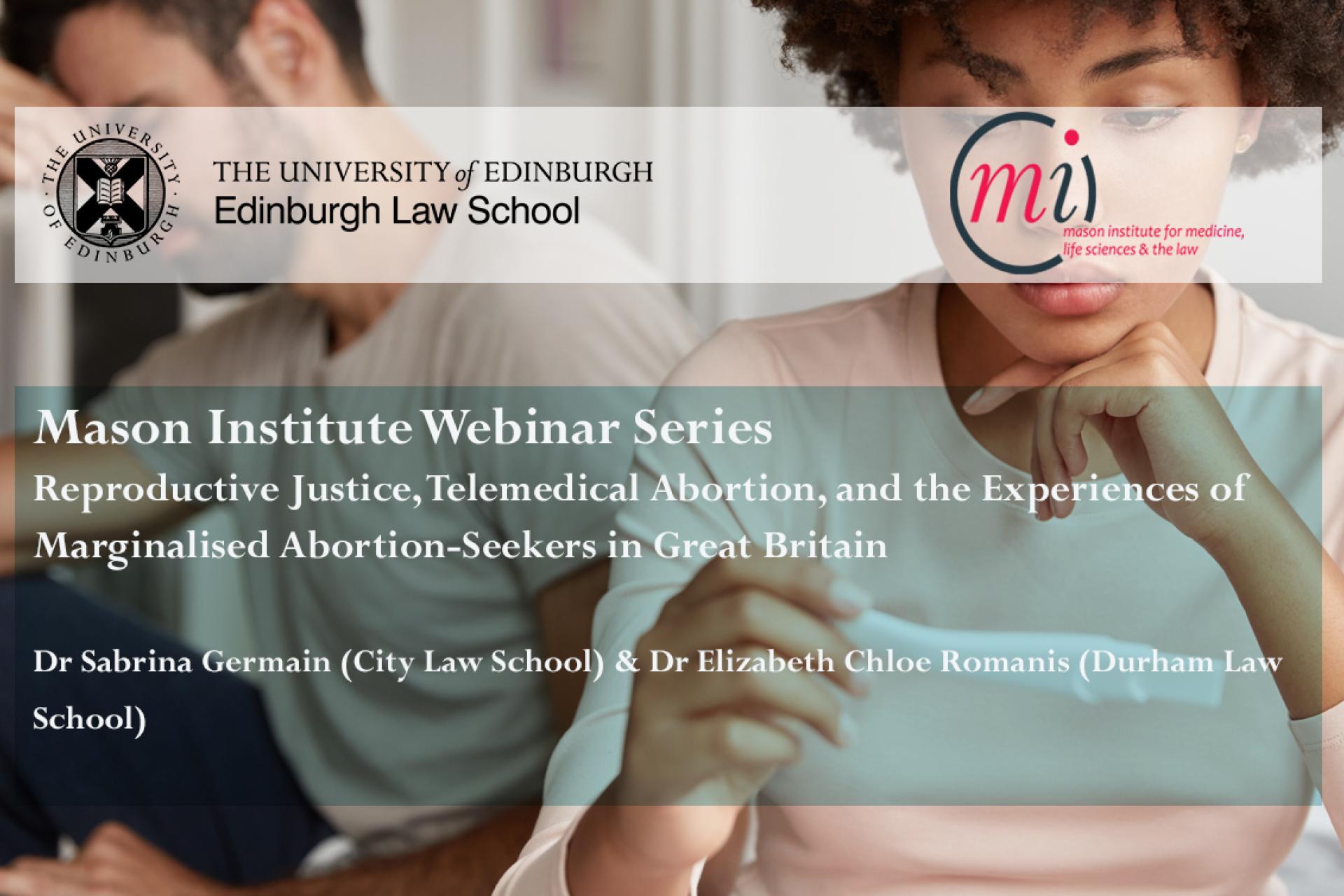Mason Institute Webinar Series: Reproductive Justice, Telemedical Abortion, and the Experiences of Marginalised Abortion-Seekers in Great Britain

Location:
Online only
Date/time
Tue 19 November 2024
13:00 - 14:00
About the event
Changes were made to abortion law in Great Britain in 2020 – that became permanent in England and Wales in 2022 and are rolling in Scotland – allowing the provision of abortion medications by telemedicine. A growing body of legal scholarship praises these changes for having increased the accessibility of abortion for a range of people, including those living in rural areas, poorer people, people with disabilities and younger people. However, an intersectional analysis using a reproductive justice approach is missing from this body of work. People with intersecting marginalised identities are facing unique challenges, including racialised medical perceptions, health illiteracy, stigma, language, and cultural and socio-economic factors, when accessing many healthcare services. The experiences of people marginalised within healthcare are important stories untold in legal scholarship.
A reproductive justice approach, developed in the US by Black feminist activists, that centres the voices of racialised people and LGBTQ+ people, is a generative framework for looking at telemedicine abortion in Great Britain. Reproductive justice brings the social realities of inequality outside and within the reproductive context to the forefront of understanding the law and considers the impact inequality (of different forms) has on individual control over reproductive decision-making. We use this approach with an intersectional framework to centre the experiences of marginalised people and understand the extent to which the law, social structures and access to telemedicine frame these experiences.
We argue that while telemedicine is an important development, it may not meet the needs of all abortion-seekers, especially some marginalised groups. The problems stem from the over regulation of abortion itself.
About the speakers
Dr Sabrina Germain is a Reader in Healthcare Law and Policy and the Associate Dean for Equality Diversity and Inclusion at the City Law School. She is also the co-lead of the Health and Equity Lab at City St George’s, and a member of the Medical Law Review editorial advisory board. Her research calls attention to the importance of justice in healthcare law and policy. In recent years, she has focused and been recognised for her expertise on inequalities in healthcare relating to race and gender diversity.
Dr Elizabeth Chloe Romanis (Chloe) is an Associate Professor in Biolaw at Durham Law School. She is the School’s Director of Equality, Diversity, and Inclusion. Chloe is the Co-Editor in Chief of Medical Law International. Chloe does research in reproduction and the body with a special interest in both abortion and reproductive technologies. She has published widely on these subjects in leading journals such as the Modern Law Review and Medical Law Review. Chloe and Sabrina are the editors (with J Herring) of a new edited textbook that places intersectionality at the forefront of teaching in healthcare ethics and law.
The book is available for pre-order.